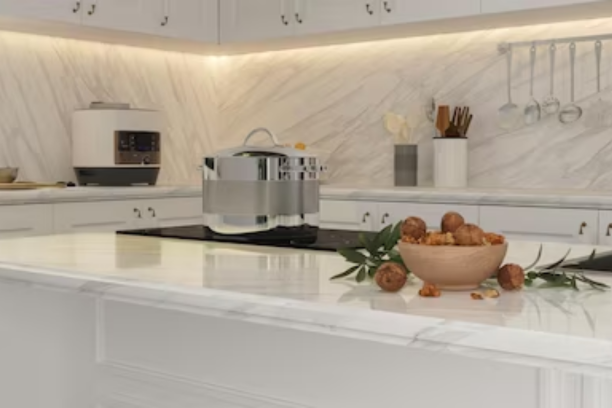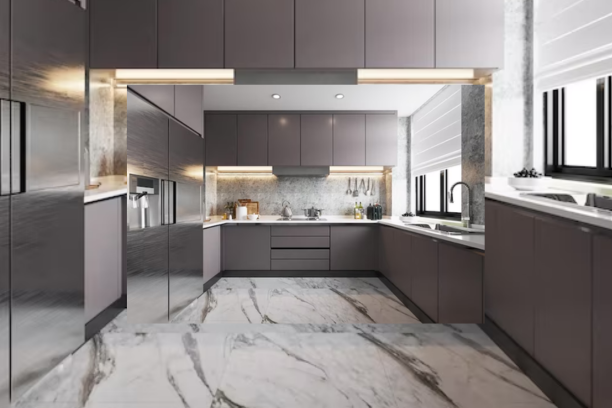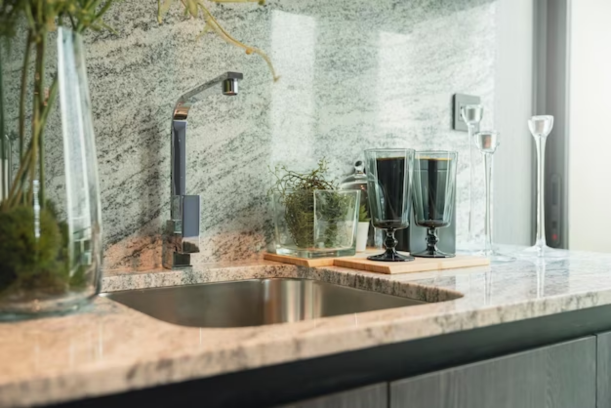What Factors Determine the Cost of Quartz Countertops?
Introduction:
A growing number of homeowners are choosing quartz countertops because of their beauty, toughness, and low maintenance needs. Quartz countertops, however, can range widely in price based on a number of criteria. To make an informed choice if you’re thinking of installing quartz countertops in your home, it’s critical to comprehend these elements. Let’s examine the main factors that affect quartz countertop prices.

Quality and Brand:
The quality and brand of the quartz material play a significant role in determining the cost. High-quality quartz countertops are usually more expensive than lower-quality options. Established and reputable brands often command higher prices due to their reputation for producing top-notch products. It’s important to remember that investing in a well-known brand and superior quality can provide long-term value and durability.
Quartz Grade and Thickness:
Quartz countertops come in different grades, ranging from entry-level to premium. The grade is determined by the quartz content, manufacturing process, and additional enhancements, such as added resins or pigments. Higher-grade quartz countertops often have a higher price tag due to their superior quality and durability. Additionally, the thickness of the quartz slab can impact the cost. Thicker slabs tend to be more expensive but offer enhanced durability and a more substantial appearance.
Size and Complexity of the Project:
The size of the countertop area and the complexity of the project can affect the overall cost. Larger countertops require more materials, resulting in higher costs. Additionally, if your project involves unique shapes, cutouts for sinks or appliances, or intricate edge profiles, the fabrication and installation process may be more labor-intensive, leading to increased costs.
Color and Design:
Quartz countertops are available in a wide array of colors, patterns, and designs. Basic colors and patterns are generally more affordable, while rare or exotic options may come at a premium price. The complexity and uniqueness of the design can also impact the cost. If you opt for custom designs, intricate veining, or specific color matching, expect the cost to rise accordingly.
Additional Features and Accessories:
The inclusion of additional features and accessories can add to the overall cost of quartz countertops. For example, integrated sinks, backsplashes, or waterfall edges are additional elements that require extra fabrication and installation work. These features not only enhance the functionality of the countertop but also contribute to its aesthetic appeal. However, it’s crucial to take your budget into account and rank the things that are most significant to you.

Conclusion:
Several factors determine the quartz countertops cost. The quality and brand, quartz grade and thickness, size and complexity of the project, color and design choices, as well as additional features and accessories all play a role in determining the final price. It’s crucial to carefully evaluate these factors and consider your budget and preferences to select the right quartz countertop that meets your needs while providing long-term value and beauty for your home.


